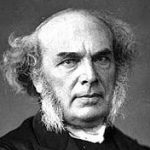Week of January 14, 2018
The Point: Jesus calls us to a higher standard.
What Defiles a Person: Mark 7:1-23.
[1] Now when the Pharisees gathered to him, with some of the scribes who had come from Jerusalem, [2] they saw that some of his disciples ate with hands that were defiled, that is, unwashed. [3] (For the Pharisees and all the Jews do not eat unless they wash their hands, holding to the tradition of the elders, [4] and when they come from the marketplace, they do not eat unless they wash. And there are many other traditions that they observe, such as the washing of cups and pots and copper vessels and dining couches.) [5] And the Pharisees and the scribes asked him, “Why do your disciples not walk according to the tradition of the elders, but eat with defiled hands?” [6] And he said to them, “Well did Isaiah prophesy of you hypocrites, as it is written, “‘This people honors me with their lips, but their heart is far from me; [7] in vain do they worship me, teaching as doctrines the commandments of men.’ [8] You leave the commandment of God and hold to the tradition of men.” [9] And he said to them, “You have a fine way of rejecting the commandment of God in order to establish your tradition! [10] For Moses said, ‘Honor your father and your mother’; and, ‘Whoever reviles father or mother must surely die.’ [11] But you say, ‘If a man tells his father or his mother, “Whatever you would have gained from me is Corban”‘ (that is, given to God)– [12] then you no longer permit him to do anything for his father or mother, [13] thus making void the word of God by your tradition that you have handed down. And many such things you do.” [14] And he called the people to him again and said to them, “Hear me, all of you, and understand: [15] There is nothing outside a person that by going into him can defile him, but the things that come out of a person are what defile him.” [16] [If anyone has ears to hear, let him hear.] [17] And when he had entered the house and left the people, his disciples asked him about the parable. [18] And he said to them, “Then are you also without understanding? Do you not see that whatever goes into a person from outside cannot defile him, [19] since it enters not his heart but his stomach, and is expelled?” (Thus he declared all foods clean.) [20] And he said, “What comes out of a person is what defiles him. [21] For from within, out of the heart of man, come evil thoughts, sexual immorality, theft, murder, adultery, [22] coveting, wickedness, deceit, sensuality, envy, slander, pride, foolishness. [23] All these evil things come from within, and they defile a person.” [ESV]
“Recovering the True Intent of the Law [1-23]. Jesus’ confrontation with the Pharisees in 7:1-23 over the question of the oral tradition has no obvious connection to the preceding episodes. Placing stories together like bricks in a row with little if any editorial cement is not unusual in Mark. This particular unit shows signs of Mark’s editorial hand throughout. The need to define hands that were defiled in verse 2, along with the parenthetical explanation of the Jewish custom of washing in verses 3-4, would be quite unnecessary if Mark were writing to Jews. Passages such as these are unmistakable evidence that Mark is writing for non-Jews, and likely for Roman Gentiles. Mark’s editorial shaping is further evinced by the reference to leaving the crowd and entering the house in verse 17, which typically allows Mark opportunity to clarify Jesus’ teaching for the benefit of disciples and readers [2:1; 3:20; 4:10; 9:28; 10:10]. An editorial hand may also be evident in the direct admonitions of verses 14 and 18, which again underscore the dullness of the crowds and disciples. Finally, the editorial addendum to verse 19 that Jesus declared all foods clean makes clear for Mark’s Roman readers that the matters of ceremonial cleansing and kosher foods, so important to observant Jews, are not binding for followers of Jesus. The editorial crafting of 7:1-23 has at least two purposes. One is to show the diametrical opposition between Jesus and the Pharisees on the question of the oral tradition. The oral tradition, which was the defining element of Pharisaic and rabbinic Judaism, is in the present pericope categorically nullified. The second effect is to underscore for Mark’s readers the radical difference between Christians and Jews on questions of foods, cleansing, and the essential meaning of morality and what is pleasing to God. The difference between inner motives [21] and ceremonial observances [18] is honed to a fine edge in the present passage. This distinction will exert a defining influence in the early church, as is evinced in the story of Peter and Cornelius in Acts 10, or in Paul’s teaching that nothing is unclean in itself, but it is unclean for anyone who thinks it unclean [Rom. 14:14]. In the framework of Mark’s Gospel, the sharp cleavage between Jesus and the Pharisees on the oral tradition signals a cleavage between Jesus and Jewish Galilee as well, for henceforth Jesus quits the northwest quadrant of the Sea of Galilee and, apart from two subsequent appearances [8:11; 9:33], directs his focus to predominantly Gentile regions, and later to Judea and Jerusalem.
[1-5] The account begins with the opposition of the Pharisees and scribes. They again come from Jerusalem, which heretofore has been the primary source of opposition to Jesus, and which lay some ninety miles south of Capernaum. We cannot say for certain, but if Jesus quits Galilee because of this episode [24], then the dispute with the Pharisees is probably not an isolated dispute but a measure of wider opposition against Him. The conflict between Jesus and the Pharisees can best be understood by examining two points on which they differed. One is the idea of uncleanness [2,5,15,18,20,23]. Rituals concerning cleanness and uncleanness reflect rabbinic developments more than actual Torah prescriptions. As Judaism’s encounter with Gentile culture increased in the postexilic period, the question of ritual cleanliness took on new significance as a way of maintaining Jewish purity over against Gentile culture. It is important to understand that “cleanness” was not limited to or even primarily concerned with matters of hygiene, nor are distinctions between clean and unclean entirely understandable on the basis of rational explanation alone. This text is one of many instances indicating that “cleanness” was a ritual or cultic distinction as opposed to a practical or hygienic distinction. Ideas such as these determine 7:2-5. For the sake of his Gentile readers, Mark spells out several types of cleansings. The Pharisees recoil from Jesus’ disciples, who eat without first washing their hands. The concept of transference of uncleanness from an object to a person in contact with the object rules the thought of verse 4. The contention between Jesus and the Pharisees over clean and unclean was, however, only symptomatic of a deeper cleavage, the crux of which concerned the tradition of the elders [3,5,8,9,13]. In distinction from the Sadducees for whom the written law of the Torah alone was authoritative, Pharisees accepted the evolving oral law as equally authoritative. By Jesus’ day, adherence to the unwritten oral tradition was as important for the Pharisees as was adherence to the Torah itself. In practice the tradition of the elders tended to shift the center of gravity from the intent of the Torah to an increasing array of peripheral matters that either obscured or perverted that intent. It is this latter effect that falls under Jesus’ withering critique in verses 6 and following.
[6-9] When Jesus refers to the Pharisees as hypocrites, He takes the term from the theater meaning to play a part on stage. Especially in Greek theater, actors wore various masks according to the roles they impersonated. The word “hypocrite,” accordingly, comes to mean someone who acts a role without sincerity, hence a pretender. The quotation from Isaiah 29:13 rightly defines “hypocrite” as one who voices lofty and even noble sentiments that are divorced from the intentions of the heart. People who do this in vain do they worship me. The result of the pretense is that “their teachings are but rules taught by men,” thus idolatry, that is, the replacement of the divine by the merely human. With regard to the oral tradition, the Pharisees substitute interpretations of the law for the law itself, indeed interpretations at variance with the intent of the law. It would be a mistake to assume that in calling the Pharisees “hypocrites” Jesus accuses them of lack of dedication. On the contrary, it was their commitment to the oral tradition – and Jesus’ equal commitment to recovering the intent of the written law – that made their differences so earnest. They may, to return to the metaphor of “hypocrite,” confuse drama with reality, but they do so with vigor and rigor – and hence are the more dangerous because of it. In 7:8-9 Jesus sets the oral interpretation in acid contrast to God’s will. The tradition of the elders [3,5,8] is declared the tradition of men [8] and your tradition [13] in contrast to the revealed commandment of God [8,9] or the word of God [13]. The Pharisees do not simply set aside God’s commandments, that is, favor something in their place; they reject them by making a conscious choice against them in order to establish your tradition [9]. The present tense of the Greek verbs in verses 8-9 implies that the Pharisees continue to uphold human traditions and continue to reject the commandments of God. The oral tradition is thus exposed and censured as a willful substitution of human contrivance for the word and will of God.
[10-13] Not only is it a human contrivance, but it is also a distortion of the law. The example of Corban brings Jesus’ critique of the oral tradition to concrete expression. The commandment to honor parents illustrates Jesus’ radical divergence from the rabbis. The fifth commandment in the Decalogue is Honor your father and your mother. But you, says Jesus, sidestep it by the contrivance of Corban. Jesus appeals to the original ruling of Moses in order to correct the oral tradition gone awry, that is, He is making the Decalogue a fence against the rabbinic tradition, as it were. The interpretation of the Pharisees is not a faithful development of the law of Moses but a perversion of it, something other than the commandment itself. Corban, from the Hebrew word for “offering,” was a rabbinic custom derived from the practice of devoting particular goods to the Lord as specified in Leviticus 27:28 and Numbers 18:14. Corban was similar to the concept of deferred giving. Today a person may will property to a charity or institution at his or her death, though retaining possession over the property and the proceeds or interest accruing from it until then. In the case of Corban, a person could dedicate goods to God and withdraw them from ordinary use, although retaining control over them himself. In the example of verse 11, a son declares his property Corban, which at his death would pass into the possession of the temple. In the meantime, however, the son retains control over the property – and his control deprives his parents of the support that otherwise would have been derived from the property in their old age. A man goes through the formality of vowing something to God, not that he may give it to God, but in order to prevent some other person from having it. This was not the end of the matter, however. Once property had been offered to God, priests discouraged anyone from withdrawing it from Corban in order to return it to human use. The practice of Corban resulted in egregious casuistry by annulling a moral commandment of the Torah (honor of parents) by a ritual practice of the oral tradition (Corban). A concrete and unambiguous moral good, Honor your father and mother, is not simply thereby nullified but actually reversed by forbidding a child to do anything for his father or mother. Corban is not simply a bad apple in the barrel, whose removal would salvage the whole lot. Rather, it typifies a comprehensive perversion promoted by the attitudes and methods of the Pharisees and scribes. And many such things you do [13], says Jesus. The verb do is present tense, signifying that Corban is not an anomaly but standard procedure among Pharisees.
[14-16] The wholesale perversion of the Torah by the oral tradition is met with a sharp and urgent appeal by Jesus: Hear me, all of you, and understand. The verb for hear occurs nine times in Mark in the context of solemn pronouncements. Mark again emphasizes that faith and understanding result from hearing. The Jews were fully agreed that eating forbidden or defiled food contaminated one and necessitated a cleansing bath [Lev. 17:15]. But Jesus reverses the direction of flow: it is actually inner impurities that defile things outside. Addressing the original accusation that the disciples were eating with unwashed hands [2], Jesus pronounces that there is nothing outside a person that by going into him can defile him, but the things that come out of a person are what defile him [16]. In a brilliant reapplication and extension of His opponents’ guiding principle, Jesus applies the theory of vessel defilement to persons, as if to say, “If the inside of vessels contaminates them, how much more so the inside of persons?” Uncleanness and defilement are matters of intention and the heart, not the violation of cultic rituals and formalities.
[17-19] The importance of this ruling is underscored by a private audience with the disciples in verse 17. Mark commonly places moments of divine revelation in a house, removed from the interference and mixed motives of the crowds. The disciples are again impervious to the truth, however. Jesus appeals to them in exasperation, are you also without understanding? Their failure to understand is not the result of stupidity, nor are they in need of enlightenment by means of esoteric instruction, as in Gnosticism. Their lack of perception is related to a false understanding of the parable, similar to that of the outsiders in 4:12. A parable cannot be understood from the outside but only by entering into it and seeing the reality that depicts from within. The disciples are like people looking at the stained-glass windows of a cathedral from the outside. Their sight and understanding are correspondingly dull and lifeless. The understanding of the law that Jesus desires is not related to physical sight or to mental awareness but to the heart [19]. The heart is the center of human personality, the will, whose separation from God was bemoaned in the Isaiah quotation of verse 6: their heart is far from me. For the benefit of those who cannot see but need to know, Jesus explains the imagery. Food may enter the mouth, but it all ends up in the same place. Mark understands Jesus thereby to declare all food clean. This is a revealing editorial insertion, for Mark seldom steps on stage as an actor in his drama. On the rare occasions when he does so his interpretations should be accorded special significance. When Mark wrote his Gospel, questions related to kosher foods and dietary regulations were prominent in the minds of converts to Christianity, particularly from paganism. Mark’s parenthetical declaration that all foods clean [19] thus reveals his understanding of Jesus’ position on the matter of clean versus unclean foods. This declaration takes precedence over the dietary regulations of both the oral and written laws. Again in Mark, the teaching of Jesus is supremely authoritative, superseding the Torah itself. Similar to the earlier pronouncement on the Sabbath [2:27-28], in presuming to render a definitive judgment on a matter of divine revelation, Jesus assumes the role of God.
[20-23] Rabbis frequently catalogued infractions of legal observances, but Jesus catalogues the deeper evils of the heart. The list in 7:21-22 shows a definite pattern in Greek. The first six terms occur in the plural, denoting evil acts. The first is sexual immorality, which can be found in Greek literature with reference to a variety of illicit sexual practices, including adultery, fornication, prostitution, and homosexuality. In the Old Testament it occurs for any sexual practice outside marriage between a man and woman that is prohibited by the Torah. This sense is retained and intensified in the New Testament. Subsequent terms in the list are generally self-explanatory: theft, murder, adultery, coveting, wickedness. The final term is less specific than the preceding terms, meaning simply “evil” or “wickedness.” The last six terms occur in the singular, denoting evil attitudes: deceit, sensuality, envy, slander, pride, foolishness. All twelve terms are lodged in the evil thoughts of the heart, thus illustrating the point of the parable in verse 15, that real defilement is what emits from the heart. All these evil things, Mark concludes, come from within, and they defile a person [23]. That restates the conclusion of the parable in verse 15, which in turn identifies the commandment of God [8] and word of God [13] with the essential matters of the heart. It is precisely the heart that the tradition of the elders fails to address, and because of this it fails to represent either the commandment or the will of God.
Summary. Verses 7:1-23 are the longest conflict speech in the Gospel of Mark. The length of the section is a clue to its importance. Mark labors to clarify that the essential purpose of the Torah, and hence the foundation of morality, is a matter of inward purity, motive, and intent rather than of external compliance to ritual and custom. “Uncleanness” can no longer be considered a property of objects but rather a description of inner attitudes, a condition of the heart. The goodness of a deed depends not solely on its doing, but primarily on its intent. The approach of the Pharisees leached the law of its intended purpose and resulted in attempts to establish human substitutes for divine judgment and grace [Rom. 10:3]. Jesus, on the contrary, and not the “traditions of men,” is able to declare what is pleasing to God. Mark profiles Jesus as the one who, in contrast to the oral tradition, is the true revealer of God, for Jesus can produce the inner transformation that the law requires but cannot effect.” [Edwards, pp. 204-214].
Questions for Discussion:
- Try to pinpoint some examples in the present-day Church of the sort of traditional “external” religion Jesus condemned. Which of these, if any, have been a part of your Christian experience? How have you seen “tradition” taking the place of the Word of God as the basis for decisions in your church concerning worship, teaching, government, fellowship, etc.? Note the contrast Jesus makes in this passage between the commandment of God and the tradition of men [9]. What significant truth is Jesus teaching?
- Jesus contrasts a piety of “lips” and “heart.” What important point is Jesus making? In your own words, explain the difference between the Pharisees’ view of “uncleanness” and Jesus’ view of what makes a person unclean and clean.
- In 7:1-23, Jesus deals with the traditions of the elders [7:5] and the essential purpose of God’s law with its emphasis on inward purity, motive, and intent rather than of external compliance. Do you see this conflict still ongoing in today’s Church? For what does Jesus criticize the Pharisees in 7:6-15? How can we apply Jesus’ teaching in 7:17-23 to ourselves?
References:
The Gospel According to Mark, James Edwards, Eerdmans.
Let’s Study Mark, Sinclair Ferguson, Banner of Truth.
Mark, Robert Stein, ECNT, Baker.
Mark, Mark Strauss, Zondervan.

















